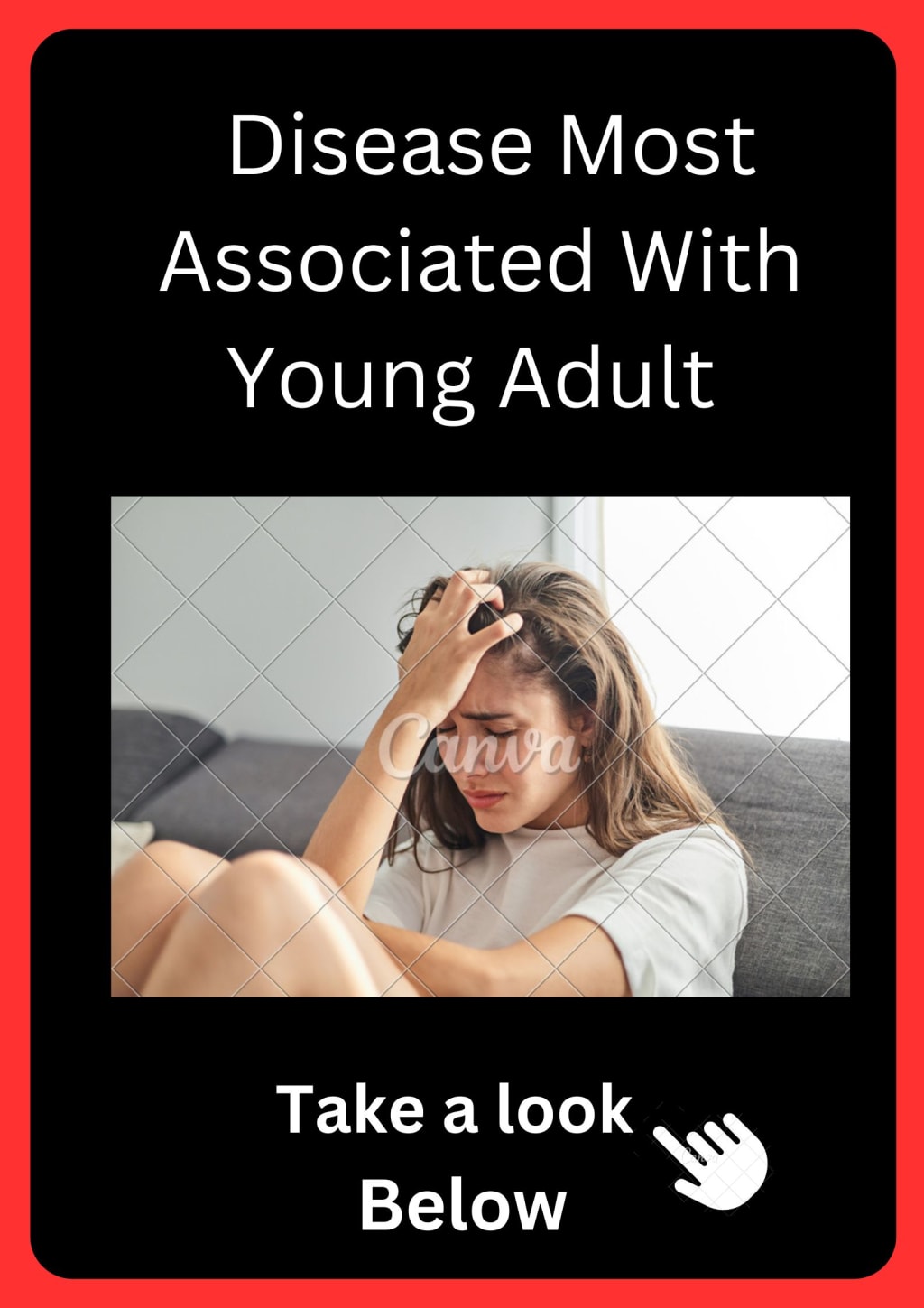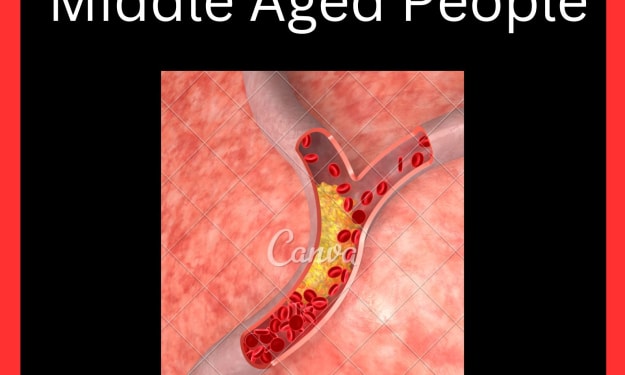Understanding Anxiety Disorders in Young Adults: Causes, Symptoms, Prevention, and Management
Anxiety disorders are among the most common mental health issues affecting young adults of both genders. These disorders can significantly impact daily life, academic performance, and social interactions. This comprehensive guide will delve into the causes, symptoms, prevention, and management of anxiety disorders in young adults. Additionally, it includes links to helpful images and video tutorials for better understanding and practical tips.

What Are Anxiety Disorders?
Anxiety disorders are a group of mental health conditions characterized by excessive and persistent feelings of worry, fear, and nervousness. While it's normal to experience anxiety in response to stress, anxiety disorders involve intense, prolonged anxiety that can interfere with daily activities.
Types of Anxiety Disorders
1. **Generalized Anxiety Disorder (GAD)**: Characterized by chronic, exaggerated worry about everyday activities and events.
2. **Panic Disorder**: Involves recurrent, unexpected panic attacks—sudden periods of intense fear.
3. **Social Anxiety Disorder**: Intense fear of social situations, leading to avoidance of such situations.
4. **Specific Phobias**: Extreme fear of a specific object or situation.
5. **Obsessive-Compulsive Disorder (OCD)**: Persistent, unwanted thoughts (obsessions) and repetitive behaviors (compulsions).
6. **Post-Traumatic Stress Disorder (PTSD)**: Anxiety following exposure to a traumatic event.
Causes of Anxiety Disorders
Anxiety disorders arise from a complex interplay of genetic, environmental, and psychological factors.
Genetic Factors
1. **Family History**: A family history of anxiety disorders can increase the risk.
2. **Genetic Predisposition**: Specific genes may make individuals more susceptible to anxiety disorders.
Environmental Factors
1. **Stressful Life Events**: Traumatic events such as accidents, abuse, or the death of a loved one can trigger anxiety disorders.
2. **Chronic Stress**: Ongoing stress from academic pressure, work, or relationships can contribute to anxiety.
Psychological Factors
1. **Personality Traits**: Certain personality traits, such as perfectionism or high sensitivity to stress, can increase the risk.
2. **Cognitive Patterns**: Negative thinking patterns and beliefs about oneself or the world can fuel anxiety.
Biological Factors
1. **Brain Chemistry**: Imbalances in neurotransmitters, such as serotonin and dopamine, can affect mood and anxiety levels.
2. **Hormonal Changes**: Hormonal fluctuations during puberty, menstrual cycles, or pregnancy can influence anxiety.
Symptoms of Anxiety Disorders
The symptoms of anxiety disorders can vary depending on the type and severity of the condition. Common symptoms include:
Emotional Symptoms
1. **Excessive Worry**: Persistent and uncontrollable worry about various aspects of life.
2. **Irritability**: Increased sensitivity and irritability.
3. **Fear**: Intense and irrational fear of specific situations or objects.
Physical Symptoms
1. **Restlessness**: Feeling on edge or restless.
2. **Fatigue**: Experiencing fatigue or exhaustion despite adequate rest.
3. **Tension**: Muscle tension and aches.
4. **Sweating**: Excessive sweating, especially in social situations.
5. **Heart Palpitations**: Rapid or pounding heartbeat.
6. **Shortness of Breath**: Difficulty breathing or a sensation of choking.
Cognitive Symptoms
1. **Difficulty Concentrating**: Trouble focusing or maintaining attention.
2. **Racing Thoughts**: Rapid, intrusive thoughts that are difficult to control.
3. **Memory Problems**: Difficulty remembering things due to constant worry.
Behavioral Symptoms
1. **Avoidance**: Avoiding situations or activities that trigger anxiety.
2. **Compulsions**: Engaging in repetitive behaviors or rituals to reduce anxiety.
Diagnosis of Anxiety Disorders
Diagnosing anxiety disorders involves a comprehensive evaluation by a mental health professional. This may include:
1. **Clinical Interview**: An in-depth discussion about symptoms, medical history, and family history.
2. **Questionnaires and Assessments**: Standardized questionnaires and assessments to evaluate the severity of anxiety.
3. **Physical Examination**: A physical examination to rule out any underlying medical conditions.
Prevention and Management of Anxiety Disorders
Preventing and managing anxiety disorders involves a combination of lifestyle changes, therapy, and, in some cases, medication. Here are some proven strategies:
Healthy Lifestyle Changes
Adopting a healthy lifestyle can significantly reduce anxiety symptoms.
1. **Regular Exercise**: Physical activity helps reduce anxiety by releasing endorphins and improving mood. Aim for at least 150 minutes of moderate-intensity exercise per week.
:max_bytes(150000):strip_icc()/woman-running-at-the-park-56a56cfd3df78cf77289696a.jpg)
- [Exercise and Anxiety Video](https://www.youtube.com/watch?v=hNX6TZAgv1E)
2. **Balanced Diet**: A nutritious diet supports overall mental health. Include plenty of fruits, vegetables, whole grains, and lean proteins in your diet.

- [Nutrition for Mental Health Video](https://www.youtube.com/watch?v=NgPZ9V3U1vg)
3. **Adequate Sleep**: Prioritize sleep by maintaining a regular sleep schedule and creating a restful environment.
4. **Stress Management**: Practice stress-reducing techniques such as deep breathing, meditation, and yoga.

- [Meditation for Anxiety Video](https://www.youtube.com/watch?v=inpok4MKVLM)
Mindfulness and Relaxation Techniques
Mindfulness practices can help reduce anxiety by promoting present-moment awareness.
1. **Mindfulness Meditation**: Practice mindfulness meditation to focus on the present moment without judgment.
2. **Progressive Muscle Relaxation**: Systematically tense and relax muscle groups to reduce physical tension.
3. **Breathing Exercises**: Practice deep breathing exercises to calm the nervous system.
- [Mindfulness for Anxiety Video](https://www.youtube.com/watch?v=6p_yaNFSYao)
Social Support
Building a strong support network can help manage anxiety.
1. **Talk to Someone**: Share your feelings with trusted friends, family members, or a therapist.
2. **Support Groups**: Join support groups to connect with others who are experiencing similar challenges.
- [Finding Support for Anxiety Video](https://www.youtube.com/watch?v=eMHiuZrSIeU)
Medication
In some cases, medication may be prescribed to manage anxiety symptoms.
1. **Antidepressants**: SSRIs and SNRIs are commonly prescribed to treat anxiety disorders.
2. **Benzodiazepines**: These are short-term medications for acute anxiety relief.
3. **Beta-Blockers**: Used to manage physical symptoms of anxiety, such as rapid heartbeat.
- [Understanding Anxiety Medication Video](https://www.youtube.com/watch?v=0Ogt2U-F6EY)
Regular Monitoring and Follow-Up
Regular check-ins with a mental health professional can help track progress and make necessary adjustments to the treatment plan.
Importance of Managing Anxiety Disorders in Young Adults
Addressing anxiety disorders in young adults is crucial for several reasons:
1. **Academic Performance**: Anxiety can significantly impact concentration, memory, and academic performance. Effective management can lead to better outcomes in school or college.
2. **Social Relationships**: Anxiety can strain relationships with friends and family. Proper management can improve social interactions and reduce feelings of isolation.
3. **Career Prospects**: Anxiety can affect job performance and career advancement. Managing anxiety can enhance productivity and career satisfaction.
4. **Overall Health**: Chronic anxiety can lead to physical health problems such as cardiovascular issues, digestive problems, and weakened immune function.
Gender-Specific Considerations
While anxiety disorders affect both genders, there are some differences in prevalence and presentation.
Anxiety Disorders in Women
Women are more likely to experience anxiety disorders than men. Hormonal fluctuations related to menstrual cycles, pregnancy, and menopause can contribute to anxiety in women. Women may also be more likely to report symptoms and seek treatment.
Anxiety Disorders in Men
Men are less likely to report anxiety symptoms and seek help due to societal expectations and stigma. However, men are still significantly affected by anxiety disorders, and untreated anxiety can lead to substance abuse and other mental health issues.
Gender-Specific Tips
1. **Women**: Pay attention to hormonal changes and their impact on anxiety. Seek support from healthcare providers to manage anxiety during significant life transitions.
2. **Men**: Encourage open discussions about mental health and seek help without hesitation. Address any substance abuse issues that may be linked to anxiety.
Conclusion
Anxiety disorders are a significant mental health issue affecting young adults of both genders. Understanding the causes, symptoms, and ways to manage anxiety is crucial for maintaining mental well-being. By
About the Creator
Enjoyed the story? Support the Creator.
Subscribe for free to receive all their stories in your feed. You could also pledge your support or give them a one-off tip, letting them know you appreciate their work.






Comments
There are no comments for this story
Be the first to respond and start the conversation.